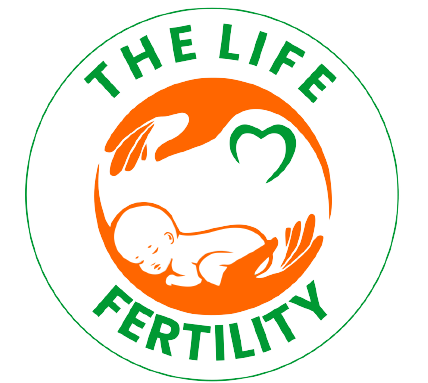Introduction
The journey to conceive is an intensely personal experience, often filled with hopes, anxieties, and unexpected challenges. For many, this path leads to a crossroads where the emotional and physical aspects of life become deeply intertwined. The relationship between stress and infertility is one such connection that has long been a subject of discussion and debate.
While it’s universally acknowledged that the emotional burden of infertility can create significant psychological distress, a crucial question remains: can stress itself be a direct cause of infertility?
Recent research has shed new light on this complex topic, moving beyond simple causation to reveal a more nuanced picture. It suggests that while acute, short-term stress is unlikely to cause infertility on its own, chronic, high-level stress can have a profound impact on the body’s reproductive systems.
This isn’t about “just relaxing” to get pregnant; it’s about understanding the biological mechanisms at play and adopting a holistic approach to managing both mind and body. This guide will explore the intricate link between stress and fertility, examining the physiological and psychological effects, and offering practical, actionable strategies for navigating this challenging journey.
The Physiological Impact of Stress on Fertility
The human body is remarkably efficient at survival. When faced with a perceived threat, it activates a primal “fight or flight” response, designed to divert energy to essential survival functions.
While this system is critical for handling danger, it can become a major obstacle when dealing with chronic psychological stress, as it directly interferes with the delicate hormonal balance required for reproduction.
How Stress Disrupts Reproductive Hormones
At the heart of the brain’s stress response is the hypothalamus, a tiny but powerful gland that acts as the command center for both the stress response and the reproductive system. When you’re under chronic stress, the hypothalamus signals the release of a cascade of stress hormones, most notably cortisol. This process is part of the hypothalamic-pituitary-adrenal (HPA) axis.
Cortisol’s primary job is to prepare the body for action by increasing heart rate and blood sugar. However, when cortisol levels are consistently elevated, they can interfere with the signals that the hypothalamus sends to the pituitary gland.
This disruption can then impact the production of key reproductive hormones like Gonadotropin-releasing hormone (GnRH), Follicle-stimulating hormone (FSH), and Luteinizing hormone (LH).
This hormonal imbalance can lead to a domino effect on the entire reproductive system. In women, it can suppress ovulation, making it difficult to predict fertile windows or preventing an egg from being released altogether.
In men, elevated stress hormones can negatively impact the production of testosterone, which is essential for healthy sperm production. This direct physiological interference is a key component of the intricate link between stress and infertility.
Stress-Induced Physical Effects
Beyond the hormonal cascade, prolonged stress can manifest in a variety of physical effects that directly impact fertility. For women, this can lead to irregular periods or even a complete absence of menstruation, a condition known as amenorrhea. Without regular ovulation, the chances of conceiving are significantly reduced. The body, in essence, is prioritizing survival over reproduction.
For men, the impact of prolonged stress on sperm quality and production is a well-documented concern. Studies have shown that chronic stress can lead to a lower sperm count, reduced sperm motility, and an increase in abnormally shaped sperm. These factors all contribute to a lower probability of successful fertilization.
Furthermore, the state of chronic stress can contribute to systemic inflammation. While inflammation is the body’s natural response to injury, chronic inflammation can have a detrimental effect on reproductive organs and overall health.
It can interfere with the proper functioning of the ovaries and testes and may even affect the uterine lining, making it less receptive to a fertilized egg. Understanding these physical effects provides a clear, scientific basis for why managing stress is a crucial part of any fertility journey.
The Psychological Toll of Infertility
The emotional and psychological burden of infertility is a profound experience, often compared to that of a life-altering illness. The emotional rollercoaster of trying to conceive—from the hope of each menstrual cycle to the crushing disappointment of a negative pregnancy test—can create significant psychological distress.
The Emotional Burden of a Diagnosis
A diagnosis of infertility can bring a wave of complex emotions. Feelings of grief and loss are common as individuals mourn the future they had envisioned for themselves. This grief is often compounded by a profound sense of isolation.
Unlike other medical conditions, infertility is often a private struggle, making it difficult to find people who truly understand the experience. This silence can lead to a heightened sense of loneliness, which further fuels anxiety and depression.
Navigating the stress of infertility treatments adds another layer of emotional complexity. The cycle of doctor’s appointments, hormone injections, and invasive procedures can feel mechanical and dehumanizing, turning a personal and intimate act into a clinical process. The pressure to “perform” on a schedule, coupled with the high stakes of each cycle, can be emotionally exhausting.
The emotional toll is not limited to the individual. It can also place immense strain on a couple’s relationship. The constant discussion about medical procedures, the pressure to have timed intercourse, and the differing ways partners cope with grief can lead to conflict and a breakdown in communication.
It is a shared struggle, and finding a way to support each other through it is vital for both emotional health and the strength of the relationship.
Breaking the Cycle: The Connection Between Distress and Infertility
Recognizing the cycle of stress and infertility is the first step toward breaking free from its grip. It’s a powerful realization: while you may not be able to control every aspect of your fertility, you can control how you respond to the emotional and physical challenges of the journey. Managing stress is not about “just relaxing” to make a baby; it’s about reclaiming a sense of well-being that has been eroded by the struggle.
The importance of self-care cannot be overstated. This is not a luxury but a fundamental necessity. It means intentionally carving out time for activities that bring you joy and a sense of peace, whether it’s reading a book, going for a walk, or simply spending time with a pet. Finding a strong emotional support system is equally critical.
This may mean leaning on a trusted friend or family member, or seeking out others who are on a similar path. Sharing experiences and knowing you are not alone can be profoundly healing. The connection between psychological distress and infertility is real, but so is the power of a proactive approach to your mental and emotional health.
Actionable Strategies for Managing Stress and Infertility
Taking proactive steps to manage stress can feel empowering, and it’s a crucial component of a successful fertility journey. These strategies are not a guarantee of conception, but they are a way to take back control of your well-being and approach the process with a greater sense of peace.
Mind-Body Interventions
One of the most effective ways to counteract the physiological effects of stress is through mind-body practices. Techniques like yoga and meditation have been scientifically shown to lower cortisol levels and promote a state of deep relaxation. Yoga, in particular, combines physical movement with deep breathing, helping to release muscular tension and calm the nervous system.
Mindfulness, a practice of bringing your attention to the present moment without judgment, can also be a powerful tool. When you’re constantly worried about the future or replaying past disappointments, you remain in a state of high alert.
Mindfulness training can help you regulate your nervous system, allowing you to respond to stressors with more clarity and less anxiety. This simple act of being present can create a much-needed sense of calm amidst the storm of infertility.
Seeking Professional Support
Navigating the emotional landscape of infertility is not something you have to do alone. Seeking professional support can provide you with the tools and guidance you need to cope with the immense pressure.
A fertility counselor or therapist who specializes in this area can offer a safe, non-judgmental space to process feelings of grief, frustration, and sadness. They can also provide practical coping strategies tailored to your specific situation.
Joining a support group is another invaluable resource. Connecting with others who understand your struggles can alleviate the feelings of isolation and provide a sense of community. Sharing your story and hearing from others can normalize your experience and offer new perspectives. Support groups create a powerful network of empathy and understanding that is often hard to find elsewhere.
Lifestyle Modifications
Small, consistent changes to your daily routine can have a significant impact on your stress levels and overall health. Prioritizing adequate sleep is a simple but essential step. The body needs rest to repair and regulate hormone production. Aim for 7-9 hours of quality sleep per night.
A healthy diet also plays a crucial role. Eating a diet rich in whole foods, healthy fats, and antioxidants can help reduce inflammation and support hormonal balance. Conversely, a diet high in processed foods and sugar can contribute to inflammation and exacerbate the effects of stress.
Incorporating moderate exercise into your routine is another powerful stress-reducer. Physical activity releases endorphins, natural mood-lifters that can help combat feelings of anxiety and infertility depression. It also provides a healthy outlet for pent-up energy and frustration.
Finally, the importance of open communication with your partner cannot be overstated. While it may be tempting to withdraw or protect each other from difficult emotions, transparency is key. Discuss your feelings, fears, and needs openly. This shared vulnerability can strengthen your bond and ensure you face the challenges of infertility as a team.
Conclusion: A Holistic Approach to Fertility
The journey to parenthood is a deeply personal one, and the connection between stress and infertility is a significant part of that journey for many. It’s a symbiotic relationship where one can exacerbate the other, creating a complex cycle of emotional and physical challenges. However, this is not a hopeless situation.
By taking a holistic approach—addressing not just medical factors but also the profound impact on your emotional and mental well-being—you can reclaim a sense of control and empowerment.
Focusing on stress reduction is a powerful way to not only cope with the daily realities of infertility but also to create a more fertile environment for both the body and the mind. It is a proactive and positive step that empowers you to care for yourself during a time of great vulnerability.
Remember that you are not alone in this struggle, and there are many resources available to support you on your path. The journey may be difficult, but by nurturing both your mind and body, you can navigate it with resilience and hope.
Can stress alone cause infertility?
While it is unlikely that stress is the sole cause of infertility, the relationship is complex. Chronic, long-term stress can disrupt the hormonal signals necessary for a healthy menstrual cycle in women and affect sperm quality in men. Research shows that high levels of stress can make it harder to conceive, but it’s typically one of several contributing factors, not the only one.
Does stress reduction improve my chances of getting pregnant?
While managing stress may not be a magic bullet, studies have shown that psychological interventions designed to reduce stress are associated with higher pregnancy rates. By lowering stress hormones and improving overall well-being, these techniques can create a more favorable environment for conception. It’s an important part of a holistic fertility treatment plan.
What is the most effective way to manage stress during my fertility journey?
The most effective strategies often involve a combination of approaches. Mind-body therapies like yoga, meditation, and acupuncture have been shown to be effective. Additionally, seeking professional counseling, joining a support group, and ensuring you have a strong support system of friends and family can significantly reduce the burden. Taking a break from actively trying to conceive can also be a healthy way to de-stress.
Is infertility causing my stress, or is stress causing my infertility?
The truth is that it is often a cycle of both. The emotional and physical strain of not being able to conceive can be a major source of anxiety and depression, and this psychological distress can in turn negatively impact the body’s reproductive functions. It’s a two-way street, which is why managing stress is so crucial for those facing infertility.




